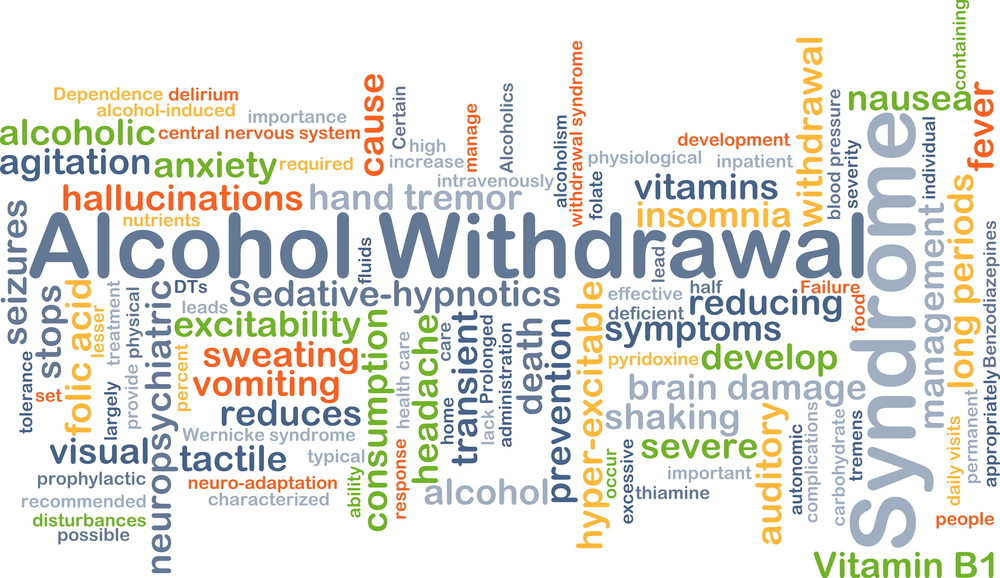What are the warning signs of Alcoholism?
There are many warning signs of alcoholism. Knowing the warning signs that you or your loved one may be an alcoholic will help you better understand the disease of alcoholism. The National Institute on Alcohol Abuse and Alcoholism report an estimated 88,000 people die each year in the United States evidently as a result of alcoholism and alcohol related deaths. (Alcohol Facts and Statistics)

There are many warning signs of alcoholism. Knowing the warning signs that you or your loved one may be an alcoholic will help you better understand the disease of alcoholism. The National Institute on Alcohol Abuse and Alcoholism report an estimated 88,000 people to die each year in the United States evidently as a result of alcoholism and alcohol-related deaths. (Alcohol Facts and Statistics) There are many similarities between the signs of alcoholism and the Signs of Drug Abuse. Alcohol is a drug and even though it is socially acceptable to drink, alcohol addiction or alcoholism can result in exasperated mental issues, severe health problems and struggles within the family.
How do I know if I am an alcoholic?
Believe it or not, alcoholism is, in fact, a medical disease– an overall serious one. Symptoms and warning signs of alcoholism and drug addiction can vary due to the frequency of consumption and the personal level of dependency. This condition does not affect only the alcoholic, but it will consequently disrupt the lives of the individual’s families and friends as a result. For many, there may be a fine line between alcohol abuse and alcoholism.
Alcoholism is a serious health issue. Always consult a medical professional with any immediate concerns. If you or a loved one starts to experience withdrawal symptoms from alcohol seek medical attention immediately. Alcohol withdrawals can cause seizures if not treated in a medical setting such as an alcohol detox or inpatient drug and alcohol treatment facility.
Alcoholism Warning Signs
What are the warning signs of alcoholism?
- Withdrawal symptoms such as sweating, anxiety, nausea, headaches, shakiness, etc.
- Constant urge to drink, especially with tendencies to get drunk alone or in secret
- Losing interest in hobbies and activities that once brought joy and excitement to life
- Prioritizing that act of drinking over vital responsibilities, such as employment and family
- More extreme mood swings and irritability
- Feeling a sense of guilt after binge drinking yet experiencing an inability to stop or say “no” next time
- Alcohol is the first thing consumed upon waking up
- Unable to relax or fall asleep unless the effects of alcohol are felt
- Decrease in social life unless drinking is the main focus of the event
- Despite financial, health and family concerns, feeling under the influence of alcohol remains a top priority
- Being unable to control or moderate the amount of alcohol being consumed on a daily basis
- Health issues such as liver damage from alcohol
Social Drinking vs Signs of Alcoholism
The reality of alcohol drinking is that it is socially acceptable– even glamorized in the media– over various parts of the world. This can be one of the reasons why the signs of being an alcohol abuser often go overlooked and unnoticed or even ignored.
Since alcoholism generally carries a stigma, many alcoholics or their loved ones find it somewhat comforting to justify an excuse. Unquestionably they might ignore the presence of such a disease within the family, although the signs of abuse are obviously right in front of them. Although it may be easier on the surface to deny the reality of alcoholic substance abuse in the family, the underlying pain, disruption, and negative effects of the illness may very well cause more damage to each person in turn. To prevent further permanent harm of both the alcoholic and his or her loved ones, it is important to identify, confront, and seek professional help sooner rather than later.
The family alcoholic situation can be compared to a physical medical illness: if someone is fighting a disease, they need a doctor, healthy treatment, and proper aftercare. Certainly, a caring community doesn’t ignore serious symptoms of physical illness– why should it be any different with an illness of substance abuse? Anyone who loves and cares about their “sick” family members would want the same help, support, and recovery for the individual struggling with alcoholism.
Alcoholism – Withdrawal Phase
What are alcohol withdrawal symptoms?
Withdrawal can be a highly dangerous process depending on the severity of alcohol dependency; however, a knowledgeable detox program can assist the patient in moving past this unpleasant experience safely. In some instances, the alcoholic may experience one of the most severe forms of alcohol withdrawal, referred to as delirium tremens. This can cause:
- Agitation
- Hallucinations
- Fever
- Confusion
- Seizures
- Tremors
- Convulsions
- An uncontrolled shaking of the hands (usually the entire body is also affected)
- Profuse sweating, even in colder conditions
For this reason, heavy drinkers who are interested in ending their battle with alcoholism should seek medical attention. Alcohol withdrawals can sometimes be fatal. Only 1 in 20 alcoholics end up with delirium tremens, which can lead to death without proper medical care.
Is drinking alone an early warning sign of alcoholism?
If you have a severe drinking problem, then you may tend to start hiding or even lying about your habitual drinking in hopes that those around you will not notice. You might believe those who have become suspicious about a possible drinking habit might begin to deter their beliefs and think that there is nothing to worry about.
Secretive behaviors include:
- Going through the tedious lengths of purchasing drinks from various stores in order to avoid people who hold suspicions of your addiction
- Mixing alcohol in your food or coffee to mask blatant “drinking”
- Drinking alone in your vehicle or your room
- Reserving a private sash of booze only you can access when no one is around
Alcoholism – Lack of Interest
Activities and cherished moments that once excited you may seem to no longer be of great interest to you with the idea of getting sober. You feel like everything is better while drunk, buzzed, and under the influence of alcohol in some manner. You may often start to find that after overindulging in alcohol-related activities, you no longer have enough time or energy left for your once cherished activities.
Am I an Alcoholic
How do I know if I am an alcoholic?
If you have concerns you may be an alcoholic, or if your closest friends and relatives have seriously inquired to you about a possible drinking problem, you can take an honest look at some of the signs alcoholism presents in your life.
Signs of an Alcoholic
- Spending excessive amounts of time drinking and then recovering from the effects, such as hangovers
- Using more time and energy indulging in parties, social drinking, or binge drinking alone than on important life responsibilities
- Consuming and spending more money than usual on alcohol to the point of putting yourself in debt
- Your typical weekend involves drinking to the point of blacking out or forgetting the events you experienced
- Being only interested in social activities where alcohol is provided
- Feeling uncomfortable if you are aware that alcohol is not available
- Prefer spending time with / going out with family or colleagues that are drinkers but not those who stay sober
- Seeking relief from alcohol when stressed, agitated, depressed, or in any other undesired emotional state
- Failing to keep promises to yourself or loved ones about cutting down on excess alcohol consumption
- Secretly indulging in alcohol when possible
- Unwilling to share your feelings, concerns, opinions, or personal struggles with loved ones and instead try to “forget” through drinking

Alcoholism – Inability To Quit
Having an alcohol addiction poses both physical and psychological damage to the individual. Many persons that suffer from alcoholism are fully aware of the life-threatening consequences and do intend to quit. Some genuinely want and attempt to reclaim their sober lives, careers, and relationships which their battle with the consumption of alcohol has destroyed. However, despite their attempts, it is not as easy to maintain and often ends up in a vicious cycle of hurting loved ones, asking for forgiveness, and feeling guilty when failing to keep promises.
Alcoholism – Justifications
Many alcoholics tend to have the same excuse for justifying their issue, “it is a way to escape from the stressful conditions, and it helps to soothe negative feelings” such depression, frustration, resentment, anger, etc.
These tactics include:
- Drinking when stressed
- Convincing yourself that having multiple drinks will make you feel better
- You only think you feel “normal” or relaxed after a few drinks
- Drinking to forget your problems
HBO Documentary “Risky Drinking” on Alcohol Abuse
Alcoholism Treatment
What Treatment Programs are available for Alcoholism
Alcohol detoxification when not done correctly poses a higher health risk than other drugs. In this case, since your body has now become so used to having a high alcohol content, sudden discontinuation of that alcohol consumption will often increase the risk of delirium tremens (DTs).
DT symptoms may become so severe that an individual can be at risk of losing their life as a direct result of alcohol withdrawal. Hence the need for professional medical detoxification to safely discontinue your battle with alcohol addiction. Depending on if the alcoholic is in denial a family member may need to consider an intervention for alcohol abuse.
Alcoholism almost always involves complex environmental, work, family and social factors. It is usually recommended to explore options for a Residential Treatment Facility. Many Drug Rehab centers and Substance Abuse Treatment Centers offer programs specifically for alcoholism.
Signs of Drug Use
Drug Addiction Warning Signs
Related Articles on Signs of Drug Addiction and Alcoholism
Signs of Alcoholism
My husband was drinking alot and started staying up late after I went to bed to hide his drinking from me. Great article




